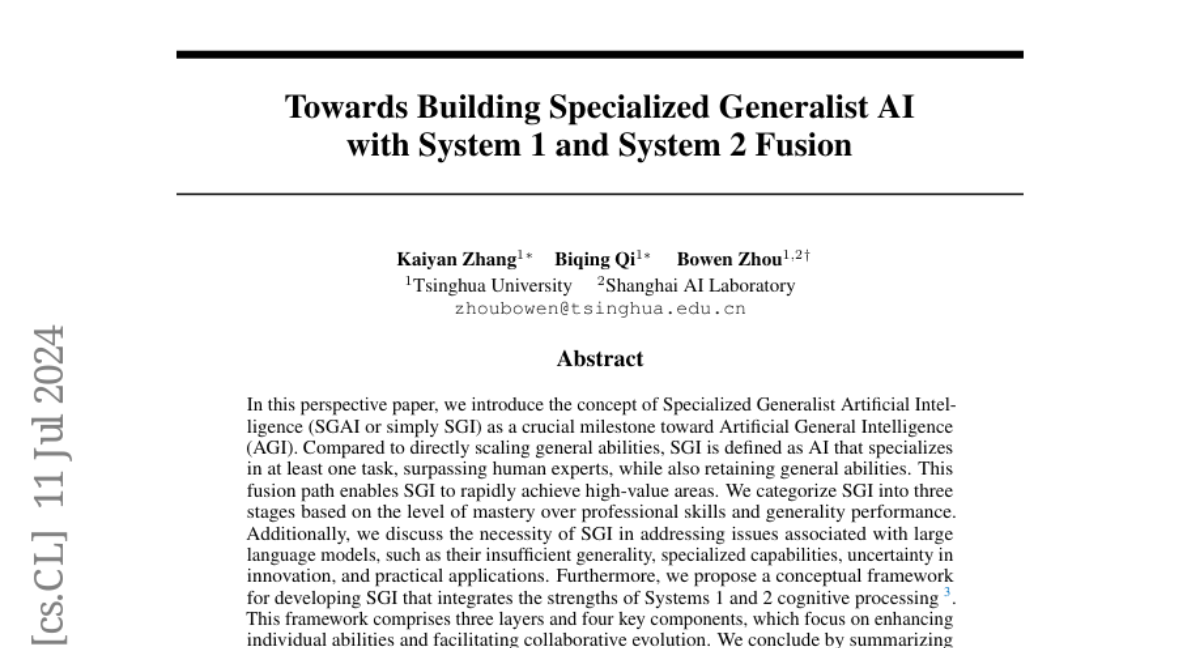Towards Building Specialized Generalist AI with System 1 and System 2 Fusion
Kaiyan Zhang, Biqing Qi, Bowen Zhou
2024-07-13

Summary
This paper introduces the idea of Specialized Generalist Artificial Intelligence (SGAI), which aims to create AI systems that are really good at specific tasks while still being able to handle a variety of other tasks. This is seen as an important step towards achieving Artificial General Intelligence (AGI), where AI can perform any intellectual task that a human can do.
What's the problem?
Current large language models (LLMs) often struggle with two main issues: they may not be specialized enough to outperform human experts in specific areas, and they can lack the general abilities needed for a wide range of applications. This limits their effectiveness in real-world scenarios where both specialized knowledge and general skills are important.
What's the solution?
The authors propose SGAI as a solution, which combines specialized skills with general abilities. They outline three stages of development for SGAI based on how well the AI can master specific tasks and maintain general capabilities. Additionally, they introduce a framework that uses two types of thinking—System 1 (fast, intuitive) and System 2 (slow, analytical)—to enhance the AI's learning and collaboration skills. This framework includes three layers and four key components aimed at improving individual abilities and teamwork among AI systems.
Why it matters?
This research is significant because it provides a new approach to developing AI that could lead to more capable and versatile systems. By focusing on both specialization and generalization, SGAI has the potential to address many challenges faced by current AI technologies, paving the way for advancements towards achieving true AGI, which could revolutionize many fields including healthcare, education, and technology.
Abstract
In this perspective paper, we introduce the concept of Specialized Generalist Artificial Intelligence (SGAI or simply SGI) as a crucial milestone toward Artificial General Intelligence (AGI). Compared to directly scaling general abilities, SGI is defined as AI that specializes in at least one task, surpassing human experts, while also retaining general abilities. This fusion path enables SGI to rapidly achieve high-value areas. We categorize SGI into three stages based on the level of mastery over professional skills and generality performance. Additionally, we discuss the necessity of SGI in addressing issues associated with large language models, such as their insufficient generality, specialized capabilities, uncertainty in innovation, and practical applications. Furthermore, we propose a conceptual framework for developing SGI that integrates the strengths of Systems 1 and 2 cognitive processing. This framework comprises three layers and four key components, which focus on enhancing individual abilities and facilitating collaborative evolution. We conclude by summarizing the potential challenges and suggesting future directions. We hope that the proposed SGI will provide insights into further research and applications towards achieving AGI.